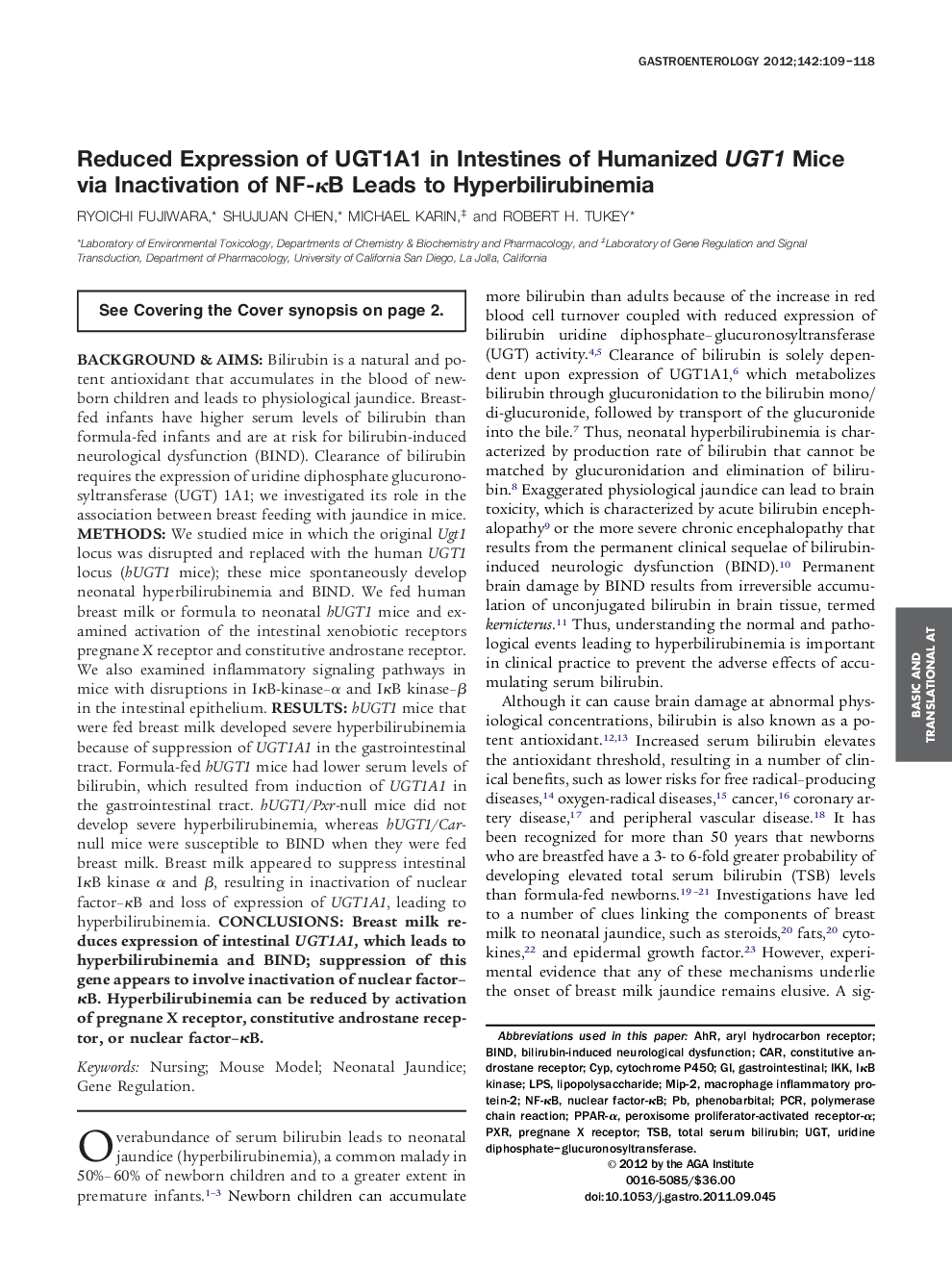| Article ID | Journal | Published Year | Pages | File Type |
|---|---|---|---|---|
| 3295452 | Gastroenterology | 2012 | 12 Pages |
Abstract
Breast milk reduces expression of intestinal UGT1A1, which leads to hyperbilirubinemia and BIND; suppression of this gene appears to involve inactivation of nuclear factor-κB. Hyperbilirubinemia can be reduced by activation of pregnane X receptor, constitutive androstane receptor, or nuclear factor-κB.
Keywords
NF-κBPPAR-αPXRMIP-2TSBIKKUGTCyPLPSAHRIκB kinasebindGene regulationGastrointestinalNeonatal jaundiceCytochrome P450nuclear factor-κBPhenobarbitallipopolysaccharideCARmacrophage inflammatory protein-2Total serum bilirubinMouse modelpolymerase chain reactionPCRperoxisome proliferator-activated receptor-αNursingaryl hydrocarbon receptorconstitutive androstane receptorPregnane X receptor
Related Topics
Health Sciences
Medicine and Dentistry
Gastroenterology
Authors
Ryoichi Fujiwara, Shujuan Chen, Michael Karin, Robert H. Tukey,
